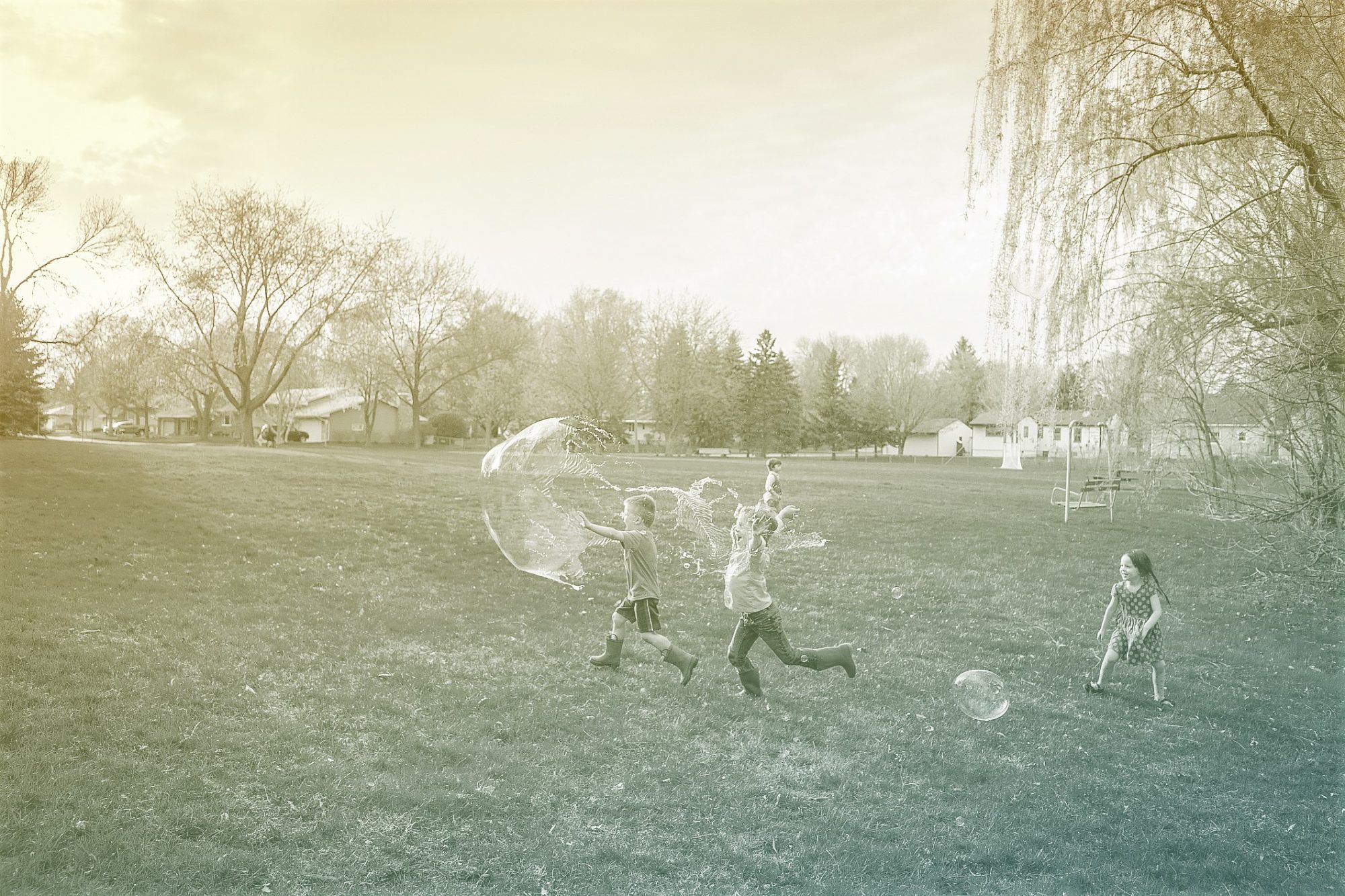There's a fine line between protecting your children—and raising them to be overly fearful of the world. That's why one Reddit mom recently wrote into the popular "Am I The A**hole" (AITA) subreddit asking for users to weigh in on the situation she found herself in.
"Ok so my husband (31) and I (28f) have this argument about things I’ve taught them while out and about," u/Browneyedgirl777 wrote. The mom of five girls—ages 2, 4, 6, 7, and 9—has some safety rules she adheres to when the family goes out as a group. One example: all five girls have to line up in age order and keep their hands on the van when getting out of the car.

"When we go anywhere I have a saying 'can’t see you can’t save you,'" the original poster continued. "So if we’re at a park that’s rather large, I am constantly moving to see each of them and if I can’t see one of them I say that, followed by their name. My husband and all of us went on a walk and we were almost home when our 7-year-old ran far enough ahead to be out of sight, at that time our 4-year-old said 'can’t see you can’t save you!' My husband now is telling me I’m making our children overly fearful. So AITA?"
Users were quick to chime in with their own experiences and reassure the mom that not only is she not an a**hole, she's successfully keeping five kiddos healthy and safe.
"I grew up with a severely anxious mother and even as an adult, I catch myself doing really odd behaviors that I learned from her," one user commented. "What you are teaching your kids is normal and healthy especially with 5 of them to keep tabs on. Just make sure that as your kids grow up, you adjust your levels of caution accordingly. (No 18 year old wants to have to keep their hand on the van.)"
Another user praised the mom for preventing her kids from getting separated from her. "I used to work around children a lot," u/BobbleheadGuardian write. "I've encountered so many incidents where children get lost in crowds because a lot of parents just don't pay attention or keep kids in line of sight. It's nice to see some kids are, in fact, being taught that they should keep within sight of their parents."
Still, it's important to consider where Dad is coming from here and question whether or not this mom's actions could affect the kids down the line.
As one user wrote, "My mom was super anxious and did things that remind me of your example. I don’t think you have any type of malicious intent but I will tell you that it took awhile (and some meds) to treat the anxiety I have [that] is associated with regular every day activities."
The reality is that children are up to seven times more likely to develop an anxiety disorder if their parent has been diagnosed with one. So anxious parents—whether they've actually been diagnosed with anything or not—need to be mindful of why they're fearful of certain situations and make sure that their reactions are, in fact, appropriate for the situation and age of the child.
According to Leela R. Magavi, M.D., a Hopkins-trained child, adolescent, and adult psychiatrist and regional medical director for Community Psychiatry, parents need to be on the same page about family rules—and keep their own emotions in check.
"Children are innately intuitive and impressionable," says Dr. Magavi. "Most children are attuned to emotions and can decipher whether Mom or Dad are appearing or acting differently. Parents’ facial expressions and body language in addition to various other factors can directly affect children. Parents can ensure that they are not exacerbating their children’s anxiety by confronting and working on their own fears. When parents fare better emotionally, their children are more likely to prosper. I recommend parents align and create family rules, which they discuss openly with their children."
When it comes to rules, though, it's best to keep things streamlined and age-appropriate. Parents need to be objective about what's going on and avoid being too much of a helicopter parent.
"Too many rules and regulations may adversely affect children’s self-esteem and faith in themselves," says Dr. Magavi. "They may develop anxiety with transitions and changes, and shy away from new experiences. Additionally, if they notice that their parents respond to situations with distress and fear, they may respond similarly. Providing love and support and encouraging open conversation while simultaneously maintaining house rules and safety protocols, or maintenance of an authoritative parenting style, is of utmost importance."
By doing this, parents can make sure they're keeping their kids safe—but allow them to be independent and enjoy new experiences.

